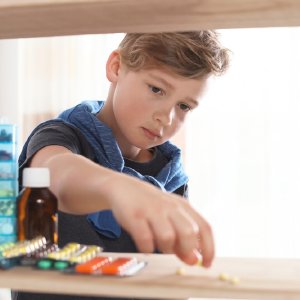From Student to Addict

Around this time of the year, in any library around the US, students are cramming last minute for their college finals. With the endless stress and crumbling pressure the college life can present, an easy ’fix’ can be very tempting to the overworked students.
Prescription medications for ADHD such as Ritalin, Adderall, and Vyvanse, have been increasingly popular among college students who have felt and experienced that pressure—even students who have not been prescribed these medications.
These prescriptions are stimulants that work by increasing the number of specific neurotransmitters, like dopamine, epinephrine, and norepinephrine to speed up the brain’s activity and give the student the impression of being productive. These drugs are prescribed to treat supposed attention deficit hyperactivity disorder, but students—healthy students—misuse them to get good grades. Raising the question, how do they even improve ADHD’?
How the amphetamine improves the problems ADHD may present, is not actually known. It was once believed that the mechanism involved neurotransmitters in the brain, and while this is how Adderall produces its effects, it does not explain how and why the medication works for ADHD (Dodson, William).
Not understanding how the medication really works shouldn’t be the only deterrent to using Adderall. On the surface, Adderall seems extremely helpful, especially when it comes to school performance, but it isn’t meant to be used that way, and it could be harmful to one’s health.
As mentioned earlier, Adderall is known for increasing certain chemicals that boost vigilance, concentration, and energy levels. As a result, the use of the drug can cause a “high” feeling, comparable to the high felt by cocaine users. And like cocaine, Adderall is also known to produce a high level of dependency (MacLaren, Erik).
Furthermore,
Those with an Adderall addiction, can and will take drastic actions to use the drug, even if it puts their well-being at risk. The dependence can occur when a person takes Adderall as part of one’s daily routine and begins to build an immunity to it, which can increase the risk of an overdose. Effects such as irritability and cardiac issues are also common with the use of Adderall. One also may exhibit the physical effects of Adderall withdrawal, such as extreme fatigue, sleep disturbances, insomnia, followed by hypersomnia, if denied the use of the drug (MacLaren, Erik).
And
While some may prefer detoxing in their home, many found it to be more successful to go to a facility and get help. Addiction professionals at a detox facility are trained to help with the depression, anxiety, and insomnia that often goes hand-in-hand when detoxing from this drug. Also, being in a supervised environment can help eliminate the danger of relapsing during a period of intense drug craving (MacLaren, Erik).
If you or anyone you know needs help, Narconon Arrowhead helps others become Drug Free. For Good. Call us and get help for yourself or your loved one.


